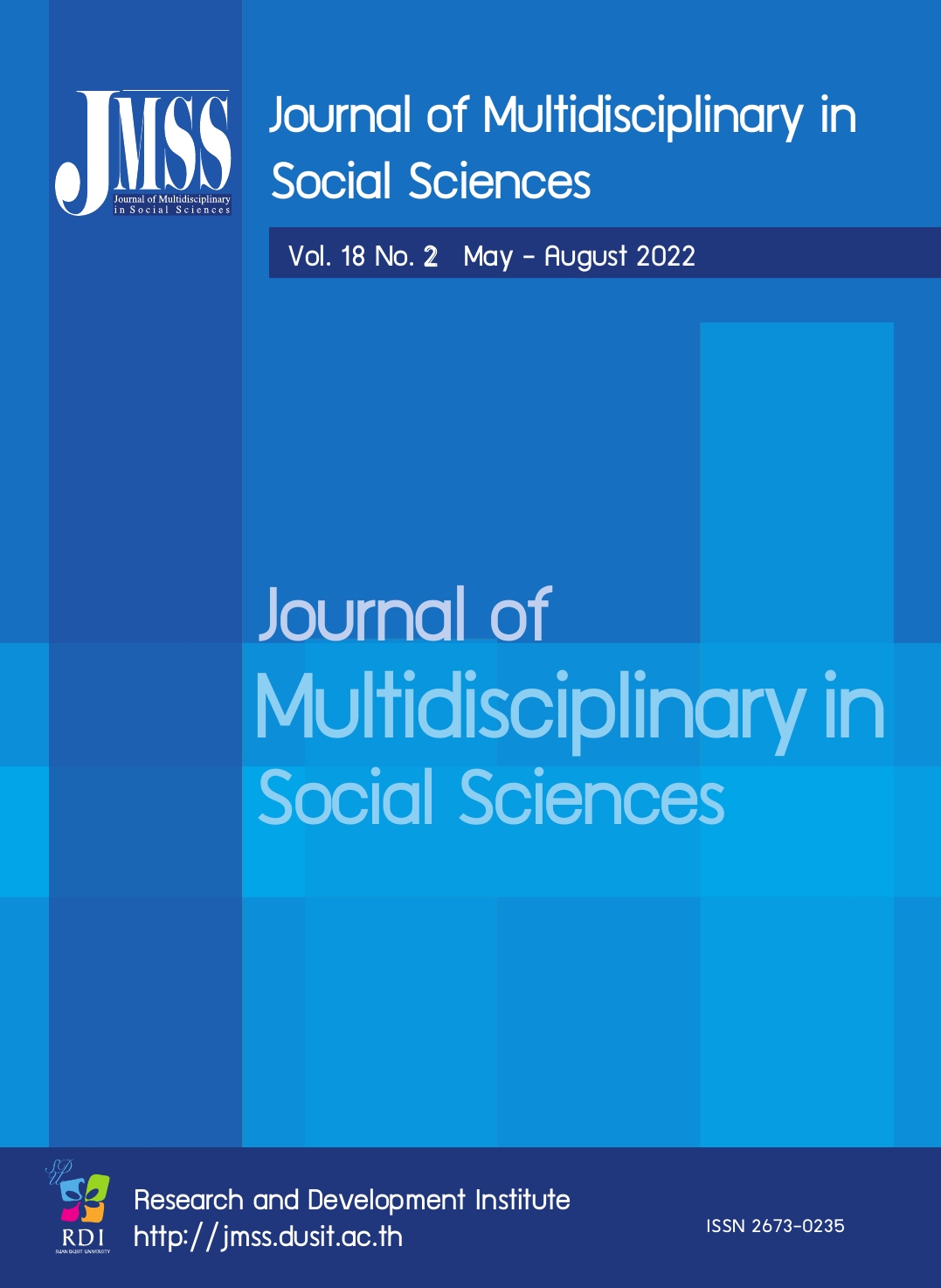The Boundary Dispute and Problems of Thai Nationalism
Keywords:
Boundary dispute, SoutheastAsia, Thai nationalism, ASEAN communityAbstract
This article reviews the boundary dispute between Thailand and neighboring countries that led to the concept of nationalism in Thailand. The boundary dispute can be classified into four types: territorial dispute, positional dispute, functional dispute, and dispute over resource development. In the case of Thailand, there are more than ten disputes between Thailand and neighboring countries. In this amount, there is the boundary dispute that has been suspended by seven parties. Five boundary disputes that are still solving problems. And one case of the suspended boundary dispute, that has been brought into the judicial process of the International Court of Justice. This study found that the important factors leading to success or failure in resolving boundary dispute include the government of each country, domestic politics, nationalist ideology, public understanding about national historical context, international relations and foreign policy, negotiation techniques, and benefit area. Under three levels of mechanisms, including government mechanisms, regional mechanisms, and international mechanisms. In conclusion, this study also encourages the creation of knowledge and understanding of the people towards the common roots and the shared history, as well as the awareness of ASEAN citizenship. And promote the regional mechanisms especially ASEAN as an intermediary to resolve the boundary dispute between member countries.
References
Connors, M.K. (2011). Thailand’s Emergency State: Struggles and Transformations. Retrieved July 5, 2019, from http://www.zenjournalist.com/wp-content/uploads/2012/01/Connors2011.pdf
Dechabutr, S. (2009). Losing territories to colonial imperialism: from Koh Mak to Preah Vihear Mountain History of Thai losing territory 14 times in the Rattanakosin era. Bangkok: Rak Kaew Publishing.
Khamkhun, A. (2015). Boundary Dispute Management in ASEAN. Bangkok: The Thailand Research Fund.
International Court of Justice. (June 15, 1962). International Court of Justice Case of Temple of Preah Vihear Cambodia v. Thailand Judgement. Retrieved July 2, 2019, from http://www.worldcourts.com/icj/eng/decisions/1962.06.15_preah_vihear.htm
International Court of Justice. (April 28, 2011). Request for Interpretation of the Judgment of 15 June 1962 in the Case concerning the Temple of Preah Vihear (Cambodia v. Thailand) Retrieved July 6, 2019, from https://www.icj-cij.org/en/case/151
International Court of Justice. (November 11, 2013). International Court of Justice Case of Request for Interpretation of the Judgment of 15 June 1962 in the case concerning the Temple of Preah Vihear (Cambodia v. Thailand). Retrieved Oct 6, 2019, from https://www.icj-cij.org/files/case-related/151/17714.pdf
Marume, S.B., Jubenkanda, R.R., Namusi, C.W., Madziyire, N.C. (2016). An analysis of essential elements of the State. International Journal of Engineering Science Invention, 5(3), 24-28.
McCloud, D.G. (1995). Southeast Asia: Tradition and Modernity in the Contemporary World. Boulder, US: Westview Press.
Ministry of Foreign Affairs. (February 14, 2011). Statement by His Excellency Mr. Kasit Piromya, Minister of Foreign Affairs of Thailand, at the United Nations Security Council, New York, 14 February 2011. Retrieved July 6, 2019, from http://mfa.go.th/main/contents/files/media-center-information-26561.pdf
Prachatai. (August 2, 2008). Sondhi Limthongkul’s solution to the Preah Vihear dispute. Retrieved July 5, 2019, from https://prachatai.com/english/node/732
Preecharush, D. (2011). Southeast Asian Studies: Evolution and Change. Journal of Liberal Arts, 11(2), 1-14.
Prescott, J.R. (1965). The Geography of Frontiers and Boundaries. London, GB: Hutchinson University Library.
Sinsuphruek, J. (2013). The Spratly Islands Dispute: Legal and Political Perspectives. Monographs of Security Studies, (127-128), 13-22.
Strate, S. (2015). The Lost Territories: Thailand’s History of National Humiliation. Honolulu: University of Hawai’i Press The Strategic Studies Center, National Defence Studies Institute. (2013). ASEAN boundary dispute resolution mechanism. SSC Weekly Focus, 24(56), 1-2.
The Association of Southeast Asian Nations. (2007). The ASEAN Charter. Retrieved July 9, 2019, from https://www.asean.org/uploads/archive/21069.pdf
The United Nations. (1945). Charter of the United Nations and Statute of the International Court of Justice. Retrieved July 9, 2019, from https://treaties.un.org/doc/publica tion/ctc/uncharter.pdf
Wheatley, P. (1961). The Golden Khersonese: Studies in the Historical Geography of the Malay Peninsula before A.D. 1500. Kuala Lumpur, MY: Oxford University Press.
Downloads
Published
How to Cite
Issue
Section
License

This work is licensed under a Creative Commons Attribution-NonCommercial-NoDerivatives 4.0 International License.








